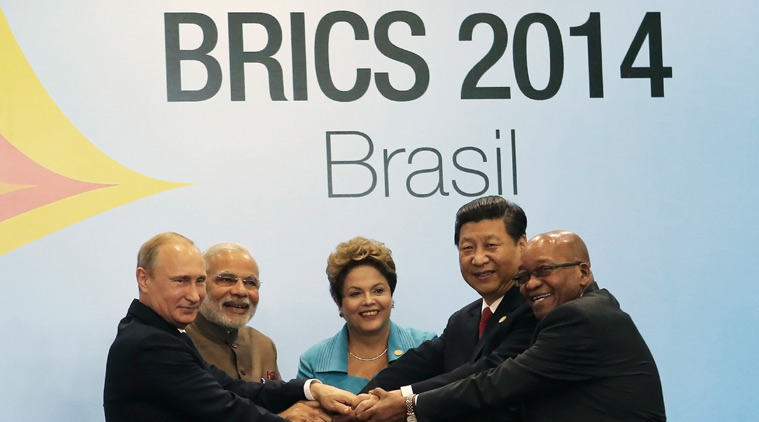Modi at BRICS: India’s Rope Trick on Internet Governance
India’s support to an an open, plural and global internet at an international conference last month won much praise from the civil society groups at home and the United States government.
 What drew applause for India was the use of the tongue-twisting term “multi-stakeholderism” by the union minister for communication and information technology, Ravi Shankar Prasad at a meeting of the ICANN.
What drew applause for India was the use of the tongue-twisting term “multi-stakeholderism” by the union minister for communication and information technology, Ravi Shankar Prasad at a meeting of the ICANN.
India’s support to an open, plural and global internet at an international conference last month won much praise from the civil society groups at home and the United States government.
At the BRICS summit in Russia this week, India’s Russian and Chinese friends would want to tug Delhi back to a position that affirms the principle of state sovereignty in cyber space and gives governments the lead role on writing the internet rules.
The tussle between East and West for India’s vote on internet is emblematic of the larger ideological war between the US on the one hand and China and Russia on the other to reorder global institutions.That India can swing the balance either way has been widely recognised for some time. If the UPA government tended to squander some of the leverage in the last few years, the NDA government appears determined to reclaim it.
What drew applause for India was the use of the tongue-twisting term “multi-stakeholderism” by the union minister for communication and information technology, Ravi Shankar Prasad at a meeting of the ICANN.
The Internet Corporation for Assigned Names and Numbers (ICANN), a non-profit entity working under the oversight of the U.S. Department of Commerce, manages the unique address system that allows easy communication between computers around the world.
In March 2014, the U.S. announced its intent to transfer the oversight of this ‘post office’ an international body when the current contract with ICANN comes to an end later this year.
The US decision has generated an intensive debate on who should govern the internet and how. The U.S. prefers a large role for the private sector and civil society groups. Russia and China have domestic political reasons of their own to make the internet more amenable to state control.
In unambiguously emphasising a role for all stake holders, including the civil society and the private sector companies, Prasad dispelled the international perception that Delhi is following the Chinese and Russian lead on cyber issues.
At a gathering on internet governance in Brazil during April 2014, the UPA government had left no ambiguity about its preference for state-centric ‘multilateralism’ rather than broad-based multi-stakeholderism.
This deeply disappointed the Indian private sector that has led India’s rapid advances in the IT sector and the civil society groups that are wary of excessive state control over the internet at home.
The NDA government’s instincts seemed similar when Narendra Modi participated in the BRICS summit in Brazil during July 2014 within weeks after he was sworn in as the Prime Minister. Since then the Modi government has reviewed India’s approach to internet governance and has chosen to nuance its position.
While Prasad’s speech is an important first step, Delhi is some distance away from developing an effective internet strategy that is in tune with India’s political values and can effectively leverage the size of the Indian market and the strength of its private sector.
India’s challenges on internet governance suggest that Delhi, more often than not, will have to make strategic choices on global issues on the basis of its national interests in the re-emerging confrontation between East and West. Neither non-alignment nor multi-alignment will be of much help for Delhi in navigating new global turbulence.
(The writer is a distinguished fellow at the Observer Research Foundation, Delhi and a contributing editor for The Indian Express)
- 01
- 02
- 03
- 04
- 05































